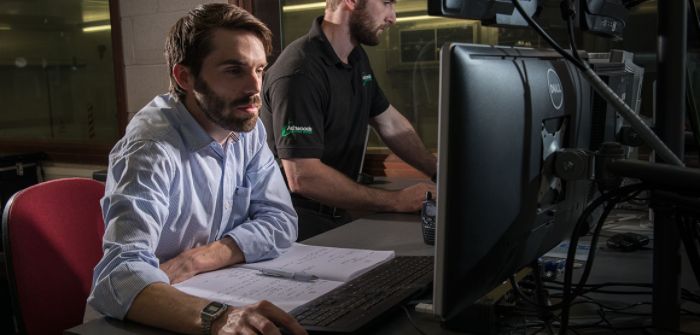The University of Bath in Southwest England has established a new Doctoral Training Centre (DTC) in advanced automotive propulsion systems.
The DTC in advanced automotive propulsion systems has received £5m (US$6.5m) funding from the UK’s Engineering and Physical Sciences Research Council (EPSRC), and will produce graduates who will bring together the many technical disciplines and skills needed to enable propulsion systems to transition to a more sustainable future.
Bath will develop high-quality research leaders through intensive research projects within its new £60m (US$78m) automotive propulsion research facility – the Institute for Advanced Automotive Propulsion Systems (IAAPS).
DTC students will have the opportunity to develop invaluable skills using the latest state-of-the-art testing facilities in a purpose-built research institute. These specialist facilities will make IAAPS a centre of excellence for training and skills development in automotive engineering, supporting new apprenticeships, honors degrees, and masters and doctoral courses, all of which will help address the engineering skills shortage facing the UK automotive sector.
The DTC will be multidisciplinary in its approach, drawing upon a 50-strong academic supervisor pool from a variety of complementary disciplines at the University of Bath. A diverse range of graduates will be recruited from across a range of first degrees, including engineering, sciences, management and social sciences.
In total, 86 studentships have been secured, 40 funded by the EPSRC, 20 by the university and 26 by the university’s industrial partners. Students will work with, and alongside, global industrial partners, ensuring that they develop both the technical and the interpersonal skills needed to succeed in such a progressive industry.
Program lead and professor of automotive propulsion at the University of Bath Chris Brace said, “By creating an environment for our graduates to research new propulsion systems and the wider context within which they sit, we will nurture individuals who will lead the scientific, technological, and behavioural changes required to develop future generations of ultra-low emission, sustainable vehicles.”
Located at the Bristol and Bath Science Park, IAAPS will lead the development of future generations of ultra-low-emission and zero-impact vehicles, and is expected to attract sector-related businesses to the region, generating economic growth.
Scheduled to open in late 2020, IAAPS will support the automotive industry in delivering rapid R&D that will accelerate the transition from low-carbon to zero-carbon vehicles. It will have the capability to complete research across all propulsion types, including fully electric and hybrid powertrains.


